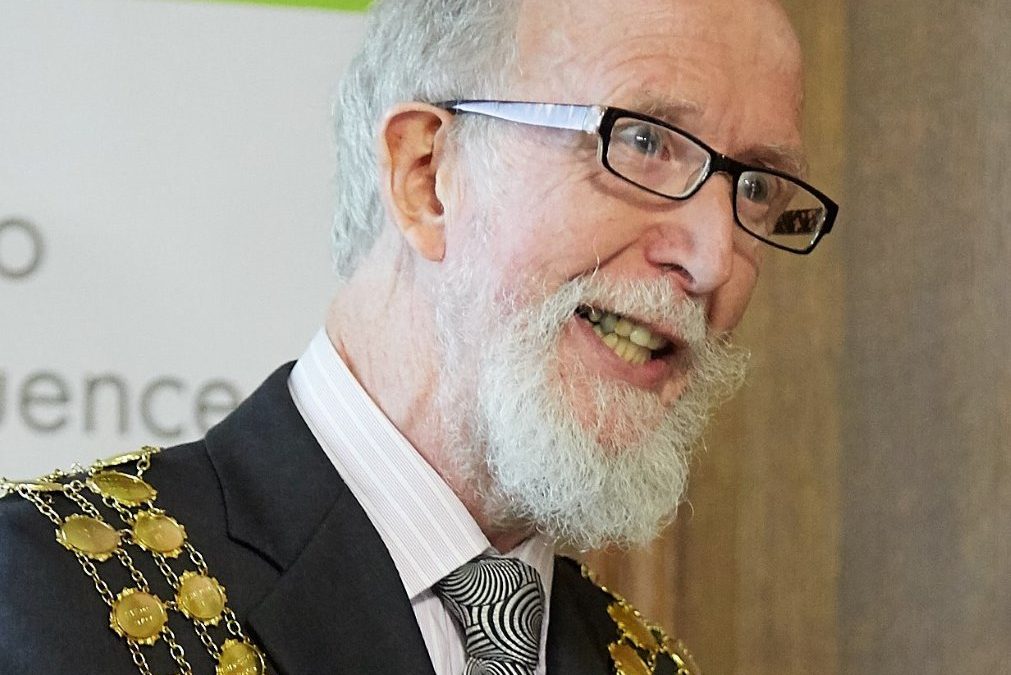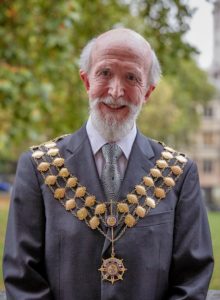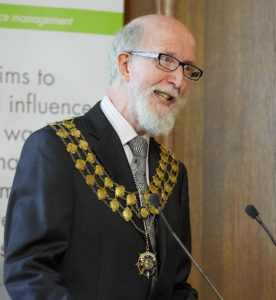29 December, 2017 | Publication, Waste Management
In his first monthly column in the CIWM Journal as CIWM President, Professor David C. Wilson has revisited his Presidential address. His overall theme for the year is solid waste management as a key utility service, underpinning modern society. Within that three strands are to avoid complacency when it comes to protecting public health and the environment; the continuing move from the linear ‘make – use – dispose’ model to a more circular economy; and the global waste crisis, with more than 3 billion people lacking access to a basic solid waste management service.
https://corazoninc.com/propecia/
DCW writes: ‘“Let us work together to promote the fact that solid waste management is one of the essential utility services underpinning our society. Let us ensure that the regular, daily delivery of that service to protect public health and the environment is not undermined, either by on-going cuts in local authority spending or by deregulation following Brexit”. And again: “It is simply unacceptable that 40% of the World’s population lack this basic utility service that we take for granted. We need to ensure that waste collection is extended to all people, and that uncontrolled dumping and open burning is eliminated.”

18 October, 2017 | Awards, Resource and waste management

Professor David C Wilson following his inauguration in Westminster as 2017-18 CIWM President

Professor David C Wilson giving his inauguration speech as CIWM President 2017-18
https://samtech.edu/accutane-treating/
Professor David C. Wilson has been inaugurated as the 102nd President of CIWM, the UK and Irish professional body for resources and waste, at a reception in London. He described solid waste management as one of the key utilities and said that as public sector budgets continue to come under pressure, “we must not lose sight of where we have come from, that the service exists first and foremost to protect public health”. He highlighted the ‘global waste management emergency’, where 40% of the World’s population lacks this basic utility service. He also launched his Presidential report, Making Waste Work: A Toolkit, prepared by WasteAid UK and aimed at helping unserved communities in the least developed countries to help themselves, by developing self-sustaining businesses making useful products for the local market from the resource value in their waste.
Outlining the importance of legislation in the substantial progress that has been made in the sustainable and safe management of waste since the early 1970s, Professor Wilson added that there can be no softening of the regulatory framework. “Two major priorities for CIWM in the UK are to ensure that following Brexit we have continuity of the strong regulations on which the very existence of the waste and resources industry depends, and the continuing fight against waste crime.”
While continuity is important on one hand, DCW went on to talk about the step change in approach to resources and waste that is happening, and he called for a “necessary parallel focus on the 3Rs – reduce, reuse, recycle – and on the shift from the linear model to a circular economy where resource efficiency and productivity is key”. An integrated and inclusive approach will be needed, he said, as well as a balanced set of policy drivers.
Professor Wilson highlighted that, despite the progress that has been made, more than 2 billion people have no waste collection at all and the waste of over 3 billion people is either dumped or subject to uncontrolled burning. This matters: for example, children growing up in households without waste collection have double the rate of diarrhoea and six times the rate of acute respiratory infection; and open burning of waste could double the current, official IPCC estimates of the contribution of methane emissions form landfill of waste to global warming. However, he also sees this ‘global waste management emergency’ as an opportunity for the international community. “If we can increase the proportion of existing international development finance being directed at SWM from the current, fairly derisory, 0.3% to just 3% up to 2030, as recommended in the GWMO, then not only can we extend waste collection to all and eliminate open dumping and burning of waste, but due to the cross-cutting nature of waste management, we can also make progress against no fewer than 12 out of the 17 UN Sustainable Development Goals agreed by world leaders to achieve a sustainable future for our planet.”
Press coverage:
Resource: Community waste schemes, the global waste crisis, domestic issues, DCW’s life in waste.
Waste Management World: Waste as a utility, domestic issues, the global waste emergency.
Letsrecycle.com: Global waste emergency, community waste toolkit
Recycling Waste World: Community waste toolkit
CIWM-journal: Waste as a utility, domestic issues, the global waste emergency, community waste toolkit
Interview with DCW in CIWM Journal:
27 August, 2017 | Conference
The German Development Bank KfW’s annual international Development Finance Forum will this year focus on the world’s oceans: Oceans 21 -Solutions for a sustainable marine future. Professor David C Wilson has been invited as the opening keynote speaker on one of the three parallel strands of the Forum, focusing on marine litter and marine plastics. The working hypothesis is that avoiding marine litter requires predominantly measures to reduce land-based sources, and of these the largest contributor by weight is inadequate solid waste management in low and middle income countries. DCW will suggest that extending waste collection to all, and eliminating open dumping of wastes, in these countries would likely reduce plastics entering the oceans by more than half. More details will follow the Forum, which is to be held in Frankfurt on 21-22 November 2017.https://corazoninc.com/cialis-cheap-20mg/
10 March, 2017 | Publication, Waste Management
Ljiljana Rodic and David C Wilson’s paper in the peer-reviewed open access journal Sustainability was published today: Resolving Governance Issues to Achieve Priority Sustainable Development Goals Related to Solid Waste Management in Developing Countries. As a key utility service that more than 2 billion people are currently lacking, solid waste management (SWM) is a crosscutting issue that can be directly linked to 12 out of the 17 UN Sustainable Development Goals (SDGs). Distinguishing between physical components and governance aspects of SWM, this research focuses on governance issues concerning basic solid waste collection services and controlled disposal, thus addressing the ‘How’ and the ‘Who’ dimensions of a SWM system.
As a form of transdisciplinary research, the findings from the literature on governance issues in SWM were iteratively subjected to several rounds of commentary by a large group of stakeholders from six continents, within the authors’ work for the United Nations Environment Programme (UNEP)’s 2015 Global Waste Management Outlook. The study identifies a combination of complementary instruments required for extending collection to all and bringing disposal under control. While municipalities have a legal responsibility for providing services to their citizens, various service providers can contribute to an effective SWM system. Appropriate forms of funding are essential to secure financial sustainability of the services under the local conditions of affordability and willingness to pay. As new services require behavioural change on the part of citizens and municipal waste departments alike, communication and exchange with other stakeholders function as enabling and supporting factors. The significance of capacity development is highlighted.
28 February, 2017 | Conference, Waste Management
Professor David C Wilson will speak at the CIWM Northern Ireland Conference and Exhibition on 29 March 2017 on: REUSE: Time to make things happen, based on a major CIWM report on the state of reuse across the five nations of the British Isles, published in October 2016. He will also make the keynote address at a Red Hot Topics Open Meeting of CIWM’s South-West Centre on April 7 2017, when his topic will be: UK waste and resource management in a global context – CIWM’s role in addressing future challenges.


